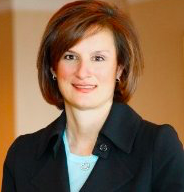- Home
- About Us
- The Team / Contact Us
- Books and Resources
- Privacy Policy
- Nonprofit Employer of Choice Award

 Daily, I meet with high net worth individuals who are looking to make a difference. These people are largely self-made. Two thirds of the people I work with are entrepreneurs who have built a significant personal fortune from the ground up. They are generous but they are not personally familiar with mega-gift philanthropy so they ask a lot of tough questions.
Daily, I meet with high net worth individuals who are looking to make a difference. These people are largely self-made. Two thirds of the people I work with are entrepreneurs who have built a significant personal fortune from the ground up. They are generous but they are not personally familiar with mega-gift philanthropy so they ask a lot of tough questions.
As these business people contemplate how they want to give back to the country that has been so good to them, they have a lot of questions about charities and the charitable sector. It is worth noting that, as an individual who has earned every penny they have, these leaders have not come from a background of inherited wealth. I find that they have a rich history of philanthropy from their family that is rooted in direct support and hands-on help. Whether that giving is sending money home as a remittance to care for a cousin, ensuring the neighbor’s sidewalk is always shoveled, or extending credit to a customer that has fallen on hard times, they are personally generous.
Being personally generous is not the same as writing your first six or seven figure gift. I find that these folks are interested in making an effective difference. With a strong business background, these business leaders do not want to simply hear that all charities are great, they want to hear about the challenges and limits in the charity model. They want to understand how to evaluate the work of a charity to ensure it is accountable and impactful. They want to understand how to ask tough and relevant questions just like they do in their working life.
To be fair, people with a long family history are equally generous. Many of our great Canadian institutions were built and are sustained by folks who have a long family history of wealth. As donors, this is group that has been exposed to large gift philanthropy from their childhood, often sitting on a family foundation board even in their early twenties. As a result, they have grown up surrounded by family members with experience and expertise in making substantial gifts. Often, the family has an established ethos around the types of causes they support and what level of support they will make to charity.
All donors want to ensure their money is well spent. I find that donors with inherited wealth see themselves more as stewards of their family's philanthropy while donors who have made their wealth in this generation are more interested in giving away a significant portion of what they have earned. Both methods are valuable and important. They feel grateful to the community that supported their businesses and helped them to acquire their wealth and want to give back to those communities.
Regardless of background, donors want accountability, scrutiny, and the appropriate information to be able to ask hard questions and to make smart decisions. For far too long, the charity sector has been unwilling to question itself. This new generation of donors is going to change this.
Jo-Anne Ryan is Vice President, Philanthropy, TD Wealth and Executive Director, Private Giving Foundation. She can be reached at JoAnne.Ryan@td.com
On Tuesday, May 30 at 12N ET Jo-Anne moderates a Facebook Live discussion with Cap in Hand author Gail Picco, President of the Sicks Kids Hospital Foundation Kevin Goldthrop, and CEO of the Children's Aid Foundation Valerie McMurtry. Click here to join the Facebook discussion https://www.facebook.com/events/2030017510559236/?active_tab=about